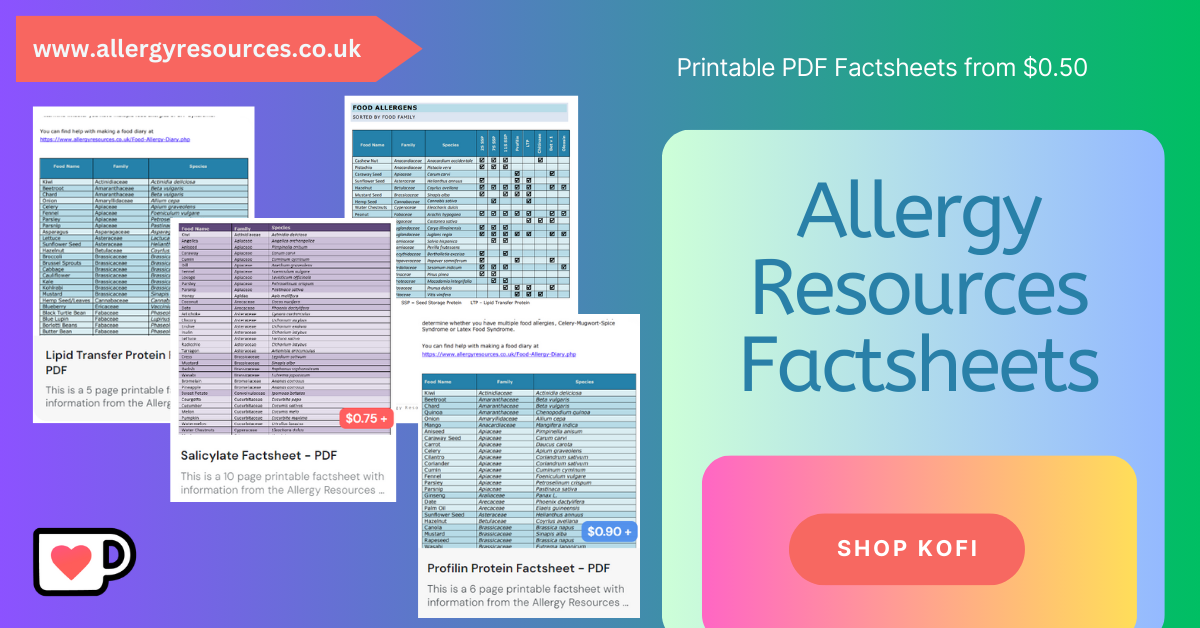
GINSENG ALLERGY
Key Allergens
Ginseng is a plant in the Araliaceae family of plants. These are generally flowering plants and types of ivy.
The root of the plant is dried and ground and was traditionally used in Chinese medicine. In more recent times it is added to lots of different products including teas and supplements.
Studies have shown links to oral allergy type symptoms, which has shown to be from Bet v 1 proteins in the herb. These proteins are more easily broken down by temperature changes and processing, and is commonly linked to pollen food allergy syndromes.
Ginseng allergy may disproportionately affect people who are regularly exposed to it, such as those working in herb shops or markets, they may be at a higher risk of developing an allergy.
The root of the plant is dried and ground and was traditionally used in Chinese medicine. In more recent times it is added to lots of different products including teas and supplements.
Studies have shown links to oral allergy type symptoms, which has shown to be from Bet v 1 proteins in the herb. These proteins are more easily broken down by temperature changes and processing, and is commonly linked to pollen food allergy syndromes.
Ginseng allergy may disproportionately affect people who are regularly exposed to it, such as those working in herb shops or markets, they may be at a higher risk of developing an allergy.
Food Intolerances
As ginseng is generally consumed in very small amounts it is very rarely linked to food intolerances.
You can read more about Food Intolerances on the dedicated Food Intolerance Page.
You can read more about Food Intolerances on the dedicated Food Intolerance Page.
Associated Syndromes
As ginseng contains Bet v 1 proteins it can be linked to Pollen Food Allergy Syndrome, which is where similarly shaped proteins cause allergy like irritation in the mouth, nose and throat.
Cross Reactivity
Other proteins which contain Bet v 1 include apple, caraway seeds, cherry, dill, hazelnut, kiwi, mango, melon, parlsey, peach, peanut, strawberry and tomato.
Please note this list of foods is not exhaustive, please visit the Cross Reactivity Tool for the most up to date food lists.
Please note this list of foods is not exhaustive, please visit the Cross Reactivity Tool for the most up to date food lists.
Resources
Websites
Articles and Journals
Effects of Red and Fermented Ginseng and Ginsenosides on Allergic Disorders, 2020
Clinical Manifestations and Risk Factors of Anaphylaxis in Pollen–Food Allergy Syndrome, 2019
First-reported pediatric cases of American ginseng anaphylaxis and allergy, 2018
Review of cases of patient risk associated with ginseng abuse and misuse, 2015
Korean Ginseng Makes Oral Allergy Syndrome in Birch-Sensitized Respiratory Allergy Patients, 2008
A Case Report of Suspected Ginseng Allergy, 2004
Let me know if you found any of these interesting or useful.
If you spot an article or research that you think is interesting you can message me or tag me on Facebook, Instagram or Twitter - links at the bottom of the page.